News
Environmental Affairs Board surprised by Riverkeeper’s presentation
Education, Environmental, Neuse River Watershed, Sound Rivers, Water Quality
Posted on January 11th, 2024
Neuse Riverkeeper Samantha Krop tackled the topic of sediment pollution with the members of the Durham Environmental Affairs Board this week.
The board — comprised of community members, appointees from the city and county, a youth contingent and other stakeholders — advises the city on environmental issues related to development and zoning, and the regulations governing both.
Sam shared a PowerPoint presentation highlighting the impacts of rapid development in southeast Durham, including data she’s collected and photos she’s taken in the field.
“I think there was a lot of surprise at the severity of the sedimentation pollution. The photos speak a million words, and though a lot of folks understand there are environmental consequences when we convert forests into developments for housing, to see it in photos is shocking,” Sam said.
The response was encouraging, she said: “They were very receptive — they followed up right away, and they were rightfully very concerned, seeing what was happening in their community. … They want to work together on making changes to the Unified Development Ordinance to protect the waterways, and work with the city to take action to address the problem.”
In nearly two years of working on the issue, Sam has stressed it’s not no development she’s after, it’s responsible development that minimizes impacts to local waterways and the habitats they support. Over that time, there have been wins and losses. In November, Durham City Council approved the rezoning of 280 acres of land on the North Carolina Natural Heritage Registry for the construction of 665 townhomes. This week, however, the Durham City-County Planning Commission voted unanimously to turn down two rezoning proposals that would have paved the way for development of another 289 acres in the Lick Creek watershed. Already impaired by the rampant development surrounding it, Lick Creek is a tributary of Falls Lake, the drinking water source for half a million Raleigh residents.
“It doesn’t mean these developments won’t happen. At some point, it will go before the Durham City Council and they will do what they will, but it’s good to the planning commission advising against these developments. We need to give them credit where credit is due,” Sam said.
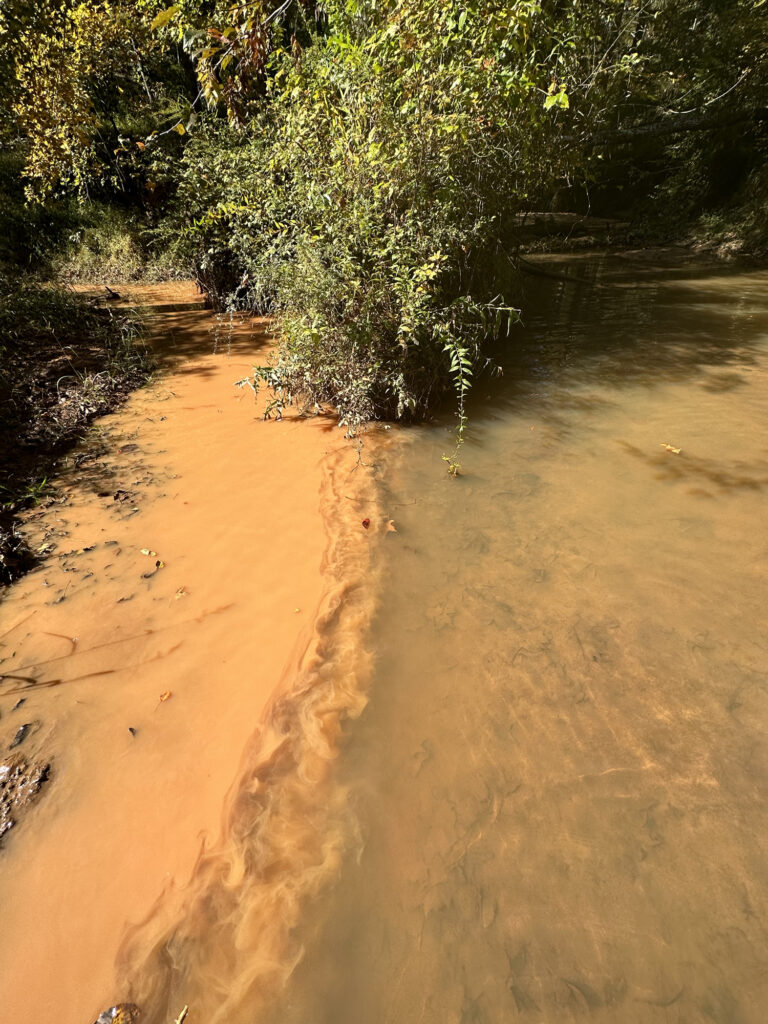
Related News
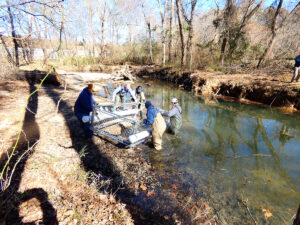
Walnut Creek trash trap install ‘a breeze’
January 22nd 2026
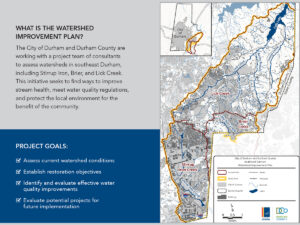
Riverkeeper: southeast Durham watershed improvement plan lacking key data
January 22nd 2026
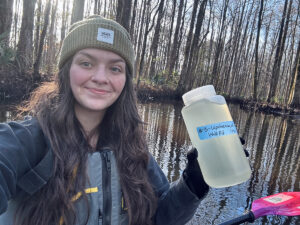
Specialist kicks off grant field work with Slocum Creek sampling
January 22nd 2026

Data center subject of Riverkeeper, county manager meeting
January 15th 2026

New tool determines best projects to minimize flood risk
January 15th 2026
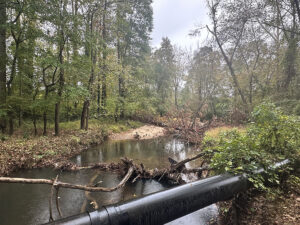
Sound Rivers set for newest trash trap install
January 15th 2026
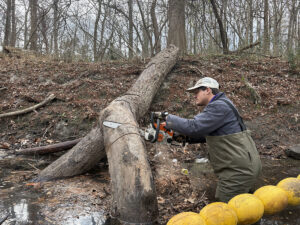
2nd trash trap gets chainsaw treatment
January 15th 2026
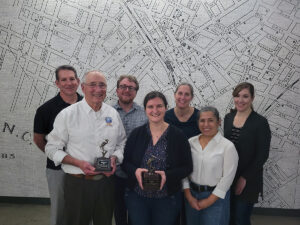
Great Blue Heron award recipients
January 15th 2026

